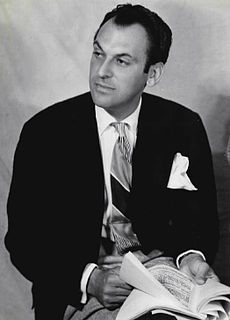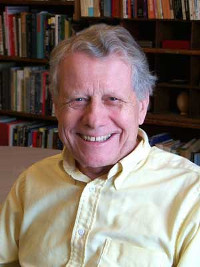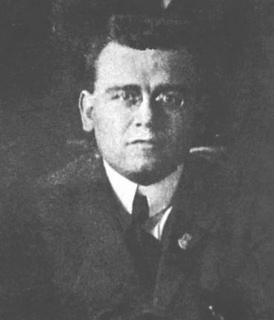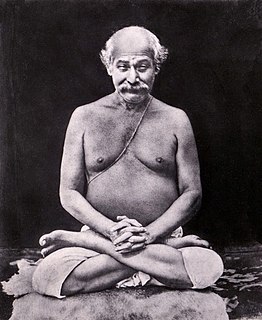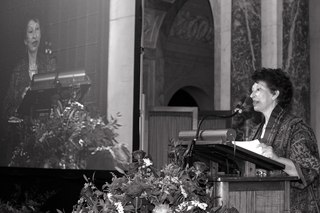Top 1200 Nineteenth Century Quotes & Sayings - Page 6
Explore popular Nineteenth Century quotes.
Last updated on December 22, 2024.
Seek out some retired and old-world spot, far from the madding crowd, and dream away a sunny week among its drowsy lanes - some half-forgotten nook, hidden away by the fairies, out of reach of the noisy world - some quaint-perched eyrie on the cliffs of Time, from whence the surging waves of the nineteenth century would sound far-off and faint.
Other centuries had their driving forces. What will ours have been when men look far back to it one day? Maybe it won't be the American Century, after all. Or the Russian Century or the Atomic Century. Wouldn't it be wonderful, Phil, if it turned out to be everybody's century, when people all over the world--free people--found a way to live together? I'd like to be around to see some of that, even the beginning.
Terroir - the taste of place - was important from the early South of the first Indian, African, and Europeans to the nineteenth-century South. During that time, Southerners ate far more locally and seasonally, from the ground they knew and grew up on. That idea connects back to today. You are a place. And as a Southerner, the food you place in your body speaks of your personal history, and of the broader Southern history.
The element of heroic maleness had always been present in the concept of the artist as one who rides the winged horse above the clouds beyond the sight of lesser men, a concept seldom applied to those who worked with colours until the nineteenth century. When the inevitable question is asked, "Why are there no great women artists?" it is this dimension of art that is implied. The askers know little of art, but they know the seven wonders of the painting world.
Problems in human engineering will receive during the coming years the same genius and attention which the nineteenth century gave to the more material forms of engineering.
We have laid good foundations for industrial prosperity, now we want to assure the happiness and growth of the workers through vocational education, vocational guidance, and wisely managed employment departments. A great field for industrial experimentation and statemanship is opening up.
A strange effect of marriage, such as the nineteenth century has made it! The boredom of married life inevitably destroys love, when love has preceded marriage. And yet, as a philosopher has observed, it speedily brings about, among people who are rich enough not to have to work, an intense boredom with all quiet forms of enjoyment. And it is only dried up hearts, among women, that it does not predispose to love.
With calm, knowledgeable precision, Daniel Ziblatt wades into the adjacent swamps of federalism and nineteenth-century European history, emerging with hands full of gems. Beneath the tangle of great statesmen and national culture he discovers conflicting regional political interests, sharp regional variations in political capacity, fearful defenses against excessive democracy, coercive conquest of weak states, and unintended consequences galore. Read, think, and learn.
You have as much computing power in your iPhone as was available at the time of the Apollo missions. But what is it being used for? It’s being used to throw angry birds at pigs; it’s being used to send pictures of your cat to people halfway around the world; it’s being used to check in as the virtual mayor of a virtual nowhere while you’re riding a subway from the nineteenth century.
The degeneration of the revolution in Russia does not pass from the revolution for communism to the revolution for a developed kind of capitalism, but to a pure capitalist revolution. It runs in parallel with world-wide capitalist domination which, by successive steps, eliminates old feudal and Asiatic forms in various zones. While the historical situation in the seventeenth, eighteenth and nineteenth centuries caused the capitalist revolution to take liberal forms, in the twentieth century it must have totalitarian and bureaucratic ones.
The parallel between antifeminism and race prejudice is striking. The same underlying motives appear to be at work, namely fear, jealousy, feelings of insecurity, fear of economic competition, guilt feelings, and the like. Many of the leaders of the feminist movement in the nineteenth-century United States clearly understood the similarity of the motives at work in antifeminism and race discrimination and associated themselves with the anti slavery movement.
In the mid to late nineteenth century, the gun manufacturers recognized that they had a limited market. Remember that this is a capitalist society, you've got to expand your market. They were selling guns to the military. That's a pretty limited market. What about all the rest of the people? So what started was all kinds of fantastic stories about Wyatt Earp and the gunmen and the Wild West, how exciting it was to have these guys with guns defending themselves against all sorts of things.
Born Losers is a beautiful piece of writing. Scott Sandage is history's Dickens; his bleak house, the late nineteenth century world of almost anonymous American men who failed. With wit and sympathy, Sandage illuminates the grey world of credit evaluation, a little studied smothering arm of capitalism. This is history as it should be, a work of art exploring the social cost of our past.
The appearance in nineteenth-century psychiatry, jurisprudence, and literature of a whole series of discourses on the species and subspecies of homosexuality, inversion, pederasty, and "psychic hermaphroditism" made possible a strong advance of social controls into this area of "perversity"; but it also made possible the formation of a "reverse" discourse: homosexuality began to speak in its own behalf, to demand that its legitimacy or "naturality" be acknowledged, often in the same vocabulary, using the same categories by which it was medically disqualified.
Kriya is an ancient science,” Yogananda writes. Mahavatar Babaji rediscovered and clarified the technique after it had been lost in the Dark Ages. Babaji revealed to Lahiri Mahasaya: “The Kriya Yoga which I am giving to the world through you in this nineteenth century is a revival of the same science which Krishna gave, millenniums ago, to Arjuna, and which was later known to Patanjali, and to Christ, St. John, St. Paul, and other disciples.
By putting the spotlight on the female child and framing her as the ideal of beauty, he condemns the mature woman to invisibility. In fact, the modern Western man enforces Immanuel Kant's nineteenth-century theories: To be beautiful, women have to appear childish and brainless. When a woman looks mature and self-assertive, or allows her hips to expand, she is condemned ugly. Thus, the walls of the European harem separate youthful beauty from ugly maturity.
The number one problem in academia today is not ignorant students but ignorant professors, who have substituted narrow "expertise" and "theoretical sophistication" (a preposterous term) for breadth and depth of learning in the world history of art and thought... Art is a vast, ancient interconnected web-work, a fabricated tradition. Overconcentration on any one point is a distortion. This is one of the primary reasons for the dullness and ineptitude of so much twentieth-criticism, as compared to nineteenth-century belles-lettres.
I guess I am nostalgic for a time - the nineteenth century and early twentieth - when writers were, to use Stefan Collini's phrase, "public moralists" and politicians, plutocrats, bankers, arms dealers, and experts and technocrats were not solely defining the moral norms as well as the political lives of our societies. We do have some writers claiming to be public moralists, but, as I said, they have actually been more jingoistic than even the henchmen of Bush and Blair.
Classic nineteenth century European imperialists believed they were literally on a mission. I don't believe that the imperialists these days have that same sense of public service. They are simply pirates. Yes, there are fundamentalists, Christian fundamentalists, who appear to be in charge of the White House at the moment, but they are very different from the Christian gentlemen who ran the British Empire and believed they were doing good works around the world. These days it's about naked power.
Absolutely delightful, at first for its unspoiled picture of late-nineteenth-century Japan as seen through the eyes of three remarkable but very different Americans, [the missionary William Elliot Griffis [1843-1928], the scientist Edward Sylvester Morse [1838-1925], and the writer Lafcadio Hearn], and then for the marvelous reconstruction of how Japan worked on their minds, radically changing their perceptions of the country and the whole relationship between East and West--between the barbarian and the civilized. The book is a tour de force.
For arousing compassion, the nineteenth-century yogi Patrul Rinpoche suggested imagining beings in torment - an animal about to be slaughtered, a person awaiting execution. To make it more immediate, he recommended imagining ourselves in their place. Particularly painful is his image of a mother with no arms watching as a raging river sweeps her child away. To contact the suffering of another being fully and directly is as painful as being in the woman's shoes.
For every nineteenth-century middle-class family that protected its wife and child within the family circle, there was an Irish ora German girl scrubbing floors in that home, a Welsh boy mining coal to keep the home-baked goodies warm, a black girl doing the family laundry, a black mother and child picking cotton to be made into clothes for the family, and a Jewish or an Italian daughter in a sweatshop making "ladies" dresses or artificial flowers for the family to purchase.
When we talk about Orientalist painting, we're talking about painting generally from the seventeenth through the nineteenth century, and some would say even into the twentieth, that allows Europe to look at Africa, Asia Minor, or East Asia in a way that's revelatory but also as a place in which you can empty yourself out. A place in which there is no place. It's an emptiness and a location at once.
Throughout the first half of the nineteenth century, the (Rothschild) brothers conducted important transactions on behalf of the governments of England, France, Prussia, Austria, Belgium, Spain, Naples, Portugal, Brazil, various German states and smaller countries. They were the personal bankers of many of the crowned heads of Europe. They made large investments, through agents, in markets as distant as the United States, India, Cuba and Australia.
In the early period of Left struggles, in the late nineteenth and early twentieth century, there were many different trajectories for the struggle, whether you call it 'syndicalism' or 'anarchism' or, at the time, 'social democracy', eventually 'Communism', these were different theories of struggle. But all of them shared a basic understanding that the people...experience exploitation, they experience oppression, but they're not prepared to rise up.
This whole theory [of John Law and Jean Terrasson], as dear to French financial schemers in the eighteenth century as to American "Greenbackers" in the nineteenth, had resulted, under the Orleans Regency and Louis XV, in ruin to France financially and morally, had culminated in the utter destruction of all prosperity, the rooting out of great numbers of the most important industries, and the grinding down of the working people even to starvation.
The first generation of school reformers I talk about - nineteenth century education reformer Horace Mann, Catharine Beecher - they are true believers in their vision for public education. They have a missionary zeal. And this to me connects them a lot to folks today, whether it's education activist Campbell Brown or former D.C. public schools chancellor Michelle Rhee. It's a righteous sense, a reform push that's driven by a strong belief in a particular set of solutions.
Though determinants and matrices received a great deal of attention in the nineteenth century and thousands of papers were written on these subjects, they do not constitute great innovations in mathematics.... Neither determinants nor matrices have influenced deeply the course of mathematics despite their utility as compact expressions and despite the suggestiveness of matrices as concrete groups for the discernment of general theorems of group theory.
I think the twenty-first century happened, basically. That this century started on 9/11. And basically, it's been a century of counter reaction to globalization and the meritocracy. And a good century for 72 nations have gotten more authoritarian. We've had Brexit. We have Le Pen rising in France. We've just got a lot of these types all around the world. And the people who are suffering from globalization and the meritocracy are saying, "No more. You know, we get a voice too."
But the novels of women were not affected only by the necessarily narrow range of the writer's experience. They showed, at least in the nineteenth century, another characteristic which may be traced to the writer's sex. In Middlemarch and in Jane Eyre we are conscious not merely of the writer's character, as we are conscious of the character of Charles Dickens, but we are conscious of a woman's presence of someone resenting the treatment of her sex and pleading for its rights.
So much of my work is defined by the difference between the figure in the foreground and the background. Very early in my career, I asked myself, "What is that difference?" I started looking at the way that a figure in the foreground works in eighteenth- and nineteenth-century European paintings and saw how much has to do with what the figure owns or possesses. I wanted to break away from that sense in which there's the house, the wife, and the cattle, all depicted in equal measure behind the sitter.
The end of the eighteenth and the commencement of the nineteenth century are remarkable for the small amount of scientific movement going on in this country, especially in its more exact departments. Mathematics were at the last gasp, and astronomy nearly so; I mean in those members of its frame which depend upon precise measurement and systematic calculation. The chilling torpor of routine had begun to spread itself over all those branches of Science which wanted the excitement of experimental research.
Many statements about God are confidently made by theologians on grounds that today at least sound specious. Thomas Aquinas claimed to prove that God cannot make another God, or commit suicide, or make a man without a soul, or even make a triangle whose interior angles do not equal 180 degrees. But Bolyai and Lobachevsky were able to accomplish this last feat (on a curved surface) in the nineteenth century, and they were not even approximately gods.
I was really interested in 20th century communalism and alternative communities, the boom of communes in the 60s and 70s. That led me back to the 19th century. I was shocked to find what I would describe as far more utopian ideas in the 19th century than in the 20th century. Not only were the ideas so extreme, but surprising people were adopting them.
One of the great triumphs of the nineteenth century was to limit the connotation of the word "immoral" in such a way that, for practical purposes, only those were immoral who drank too much or made too copious love. Those who indulged in any or all of the other deadly sins could look down in righteous indignation on the lascivious and the gluttonous.... In the name of all lechers and boozers I most solemnly protest against the invidious distinction made to our prejudice.
Living in Montgomery, I've been antagonized by the emergence of a narrative about our history that I believe is quite false and misleading, and actually dangerous. And the narrative that emerges when you spend time in the South - places likes Alabama, Georgia, Mississippi, Louisiana - is that we have always been a noble, wonderful, glorious region of the country, with wonderful, noble, glorious people doing wonderful, noble, glorious things. And there's great pride in the Alabamians of the nineteenth century.
We tend to overestimate what we can do in a short period, and underestimate what we can do over a long period, provided we work slowly and consistently. Anthony Trollope, the nineteenth-century writer who managed to be a prolific novelist while also revolutionizing the British postal system, observed, “A small daily task, if it be really daily, will beat the labours of a spasmodic Hercules.” Over the long run, the unglamorous habit of frequency fosters both productivity and creativity.
We had learned how to invent things, and the question of why we invent things receded in importance. The idea that if something could be done it should be done was born in the nineteenth century. And along with it, there developed a profound belief in all the principles through which invention succeeds: objectivity, efficiency, expertise, standardization, measurement, and progress. It also came to be believed that the engine of technological progress worked most efficiently when people are conceived of not as children of God or even as citizens but as consumers-that is to say, as markets.
I believe that the biblical teaching is clear. It always contests political power. It incites to "counterpower," to "positive" criticism, to an irreducible dialogue (like that between king and prophet in Israel), to antistatism, to a decentralizing of the relation, to an extreme relativizing of everything political, to an anti-ideology, to a questioning of all that claims either power or dominion (in other words, of all things political), and finally, if we may use a modern term, to a kind of "anarchism" (so long as we do not relate the term to the anarchist teaching of the nineteenth century).
We must face the fact that we are on the brink of times when man may be able to magnify his intellectual and inventive capability, just as in the nineteenth century he used machines to magnify his physical capacity. Again, as then, our innocence is lost. And again, of course, the innocence, once lost, cannot be regained. The loss demands attention, not denial.
In the early nineteenth century, the doctrine of self-sufficiency came to apply to families as well as individuals.... The familybecame a special protected place, the repository of tender, pure, and generous feelings (embodied by the mother) and a bulwark and bastion against the raw, competitive, aggressive, and selfish world of commerce (embodied by the father).... In performing this protective task, the good family was to be as self-sufficient as the good man.
Unlike the rationalism of the French Revolution, true liberalism has no quarrel with religion, and I can only deplore the militant and essentially illiberal antireligionism which animated so much of nineteenth-century Continental liberalism. ... What distinguishes the liberal from the conservative here is that, however profound his own spiritual beliefs, he will never regard himself as entitled to impose them on others and that for him the spiritual and the temporal are different sphere which ought not to be confused.
In his wretched life of less than twenty-seven years Abel accomplished so much of the highest order that one of the leading mathematicians of the Nineteenth Century could say without exaggeration, "Abel has left mathematicians enough to keep them busy for five hundred years." Asked how he had done all this in the six or seven years of his working life, Abel replied, "By studying the masters, not the pupils."
Monarchs not only fashion their age, but are fashioned by it, so that they can become a sort of personification of the age. If Elizabeth I, independent, strong, represents the age of Shakespeare's heroines, a woman's heyday, Victoria represents another image of womanhood, predominant in the nineteenth century: a woman who, although queen in her own right, leaned on her husband, looked up to him, and went into perpetual mourning after his death. The feminist movement filled her with shocked horror and outrage.
Was it possible that Napoleon should win the battle of Waterloo? We answer, No! Why? Because of Wellington? Because of Blucher? No! Because of God! For Bonaparte to conquer at Waterloo was not the law of the nineteenth century. It was time that this vast man should fall. He had been impeached before the Infinite! He had vexed God! Waterloo was not a battle. It was the change of front of the Universe!
Theosophy occupies a central place in the history of new spiritual movements, for the writings of Blavatsky and some of her followers have had a great influence outside of her organization. … The importance of Theosophy in modern history should not be underestimated. Not only have the writings of Blavatsky and others inspired several generations of occultists, but the movement had a remarkable role in the restoration to the colonial peoples of nineteenth century Asia of their own spiritual heritage.
The secret point of money and power in America is neither the things that money can buy nor power for power's sake... but absolute personal freedom, mobility, privacy. It is the instinct which drove America to the Pacific, all through the nineteenth century, the desire to be able to find a restaurant open in case you want a sandwich, to be a free agent, live by one's own rules.
The creative person wants to be a know-it-all. He wants to know about all kinds of things-ancient history, nineteenth century mathematics, current manufacturing techniques, hog futures. Because he never knows when these ideas might come together to form a new idea. It may happen six minutes later, or six months, or six years. But he has faith that it will happen.
Mirabelle replaces the absent friends with books and television mysteries of the PBS kind. The books are mostly nineteenth-century novels in which women are poisoned or are doing the poisoning. She does not read these books as a romantic lonely hearts turning pages in the isolation of her room, not at all. She is instead an educated spirit with a sense of irony. She loves the gloom of these period novels, especially as kitsch, but beneath it all she finds that a part of her indentifies with all that darkness.
There is one great fact, characteristic of this our nineteenth century, a fact which no party dares deny. On the one hand, there have started into life industrial and scientific forces which no epoch of former human history had ever suspected. On the other hand, there exist symptoms of decay, far surpassing the horrors recorded of the latter times of the Roman empire. In our days everything seems pregnant with its contrary.

